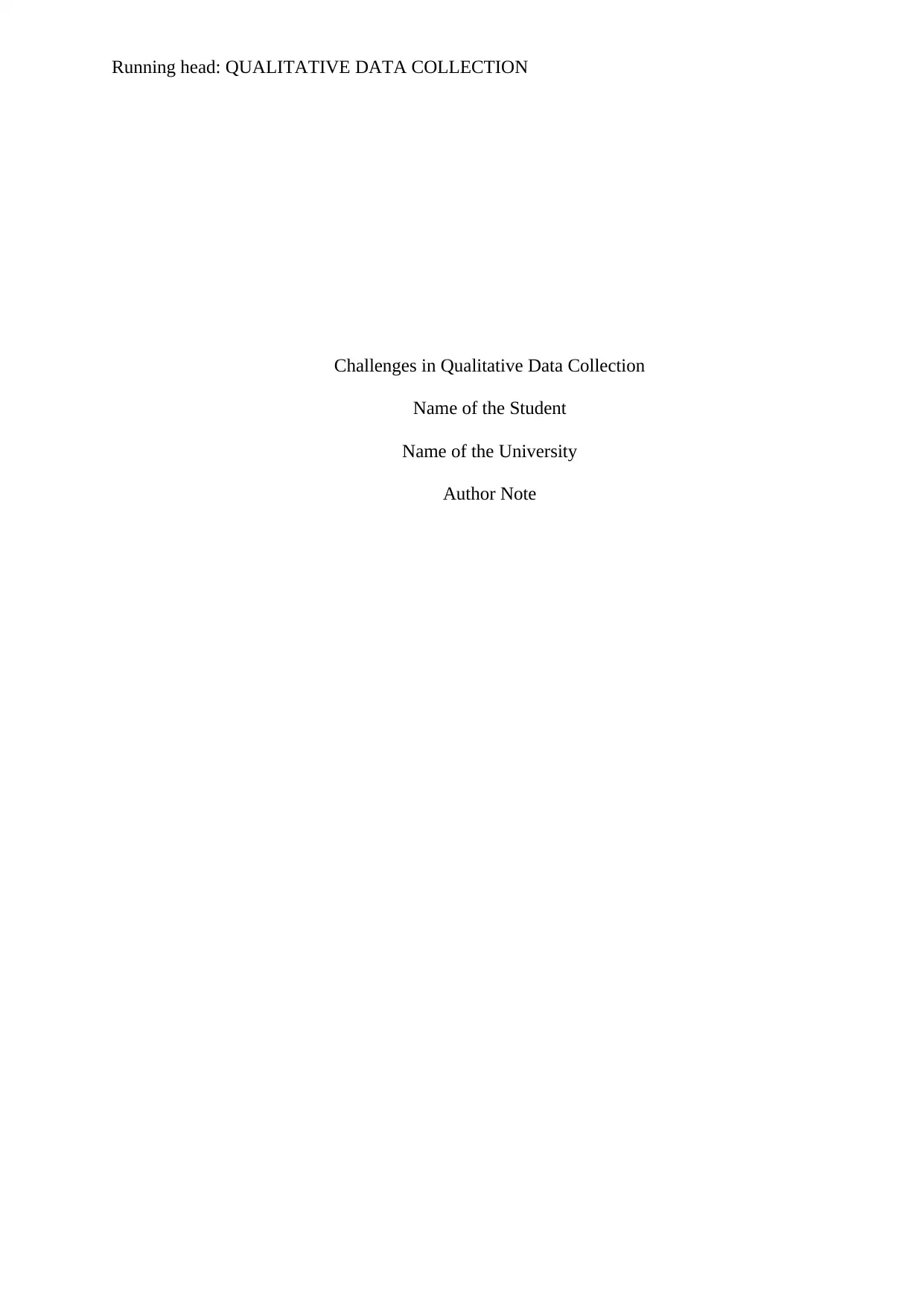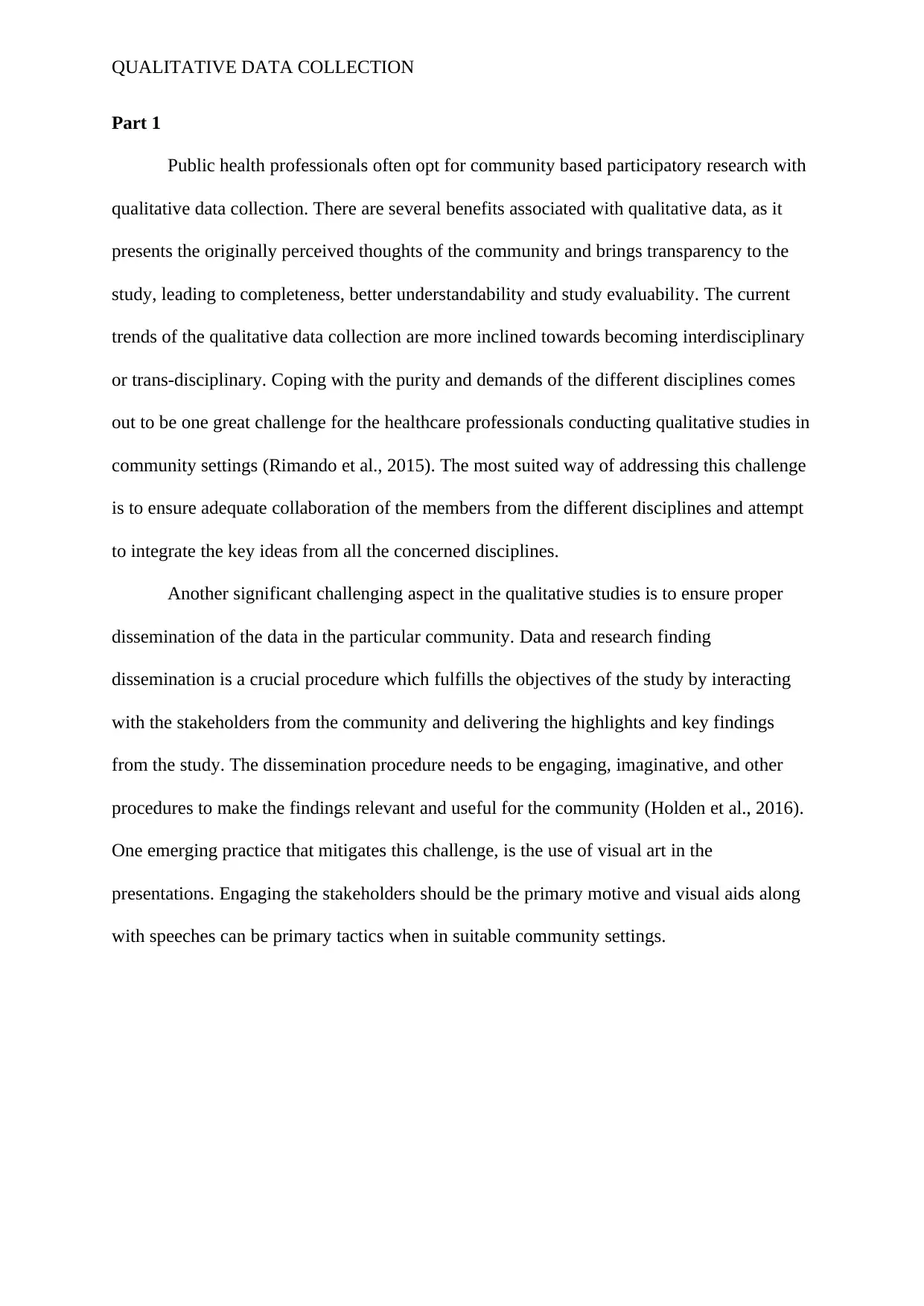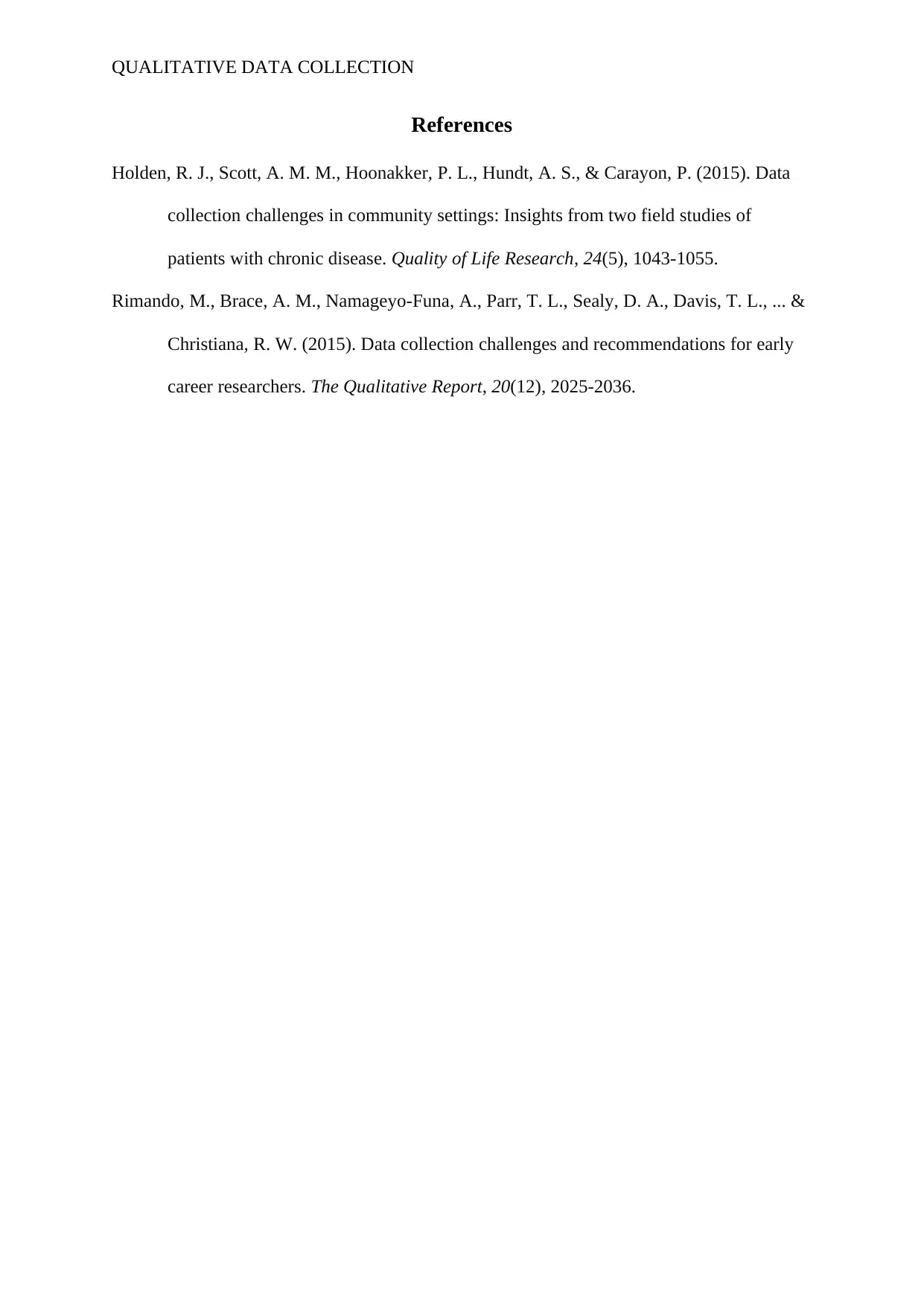Challenges and Mitigation Strategies in Qualitative Data Collection
VerifiedAdded on 2022/09/14
|3
|412
|13
Homework Assignment
AI Summary
This assignment delves into the challenges encountered by public health professionals when collecting qualitative data, particularly within community settings. The student's work addresses issues such as interdisciplinary collaboration, ensuring the dissemination of research findings, and ethical considerations related to participant privacy and data security. The assignment highlights the importance of effective communication, engagement strategies, and the use of visual aids to ensure the relevance and usefulness of research outcomes for the community. It examines the use of focus groups, interviews and observations, and the strategies that can be used to mitigate challenges such as participant apprehension, lack of engagement, and ensuring data integrity. References to relevant literature support the analysis, providing a comprehensive understanding of the complexities and best practices in qualitative data collection within the field of public health.
1 out of 3










![[object Object]](/_next/static/media/star-bottom.7253800d.svg)